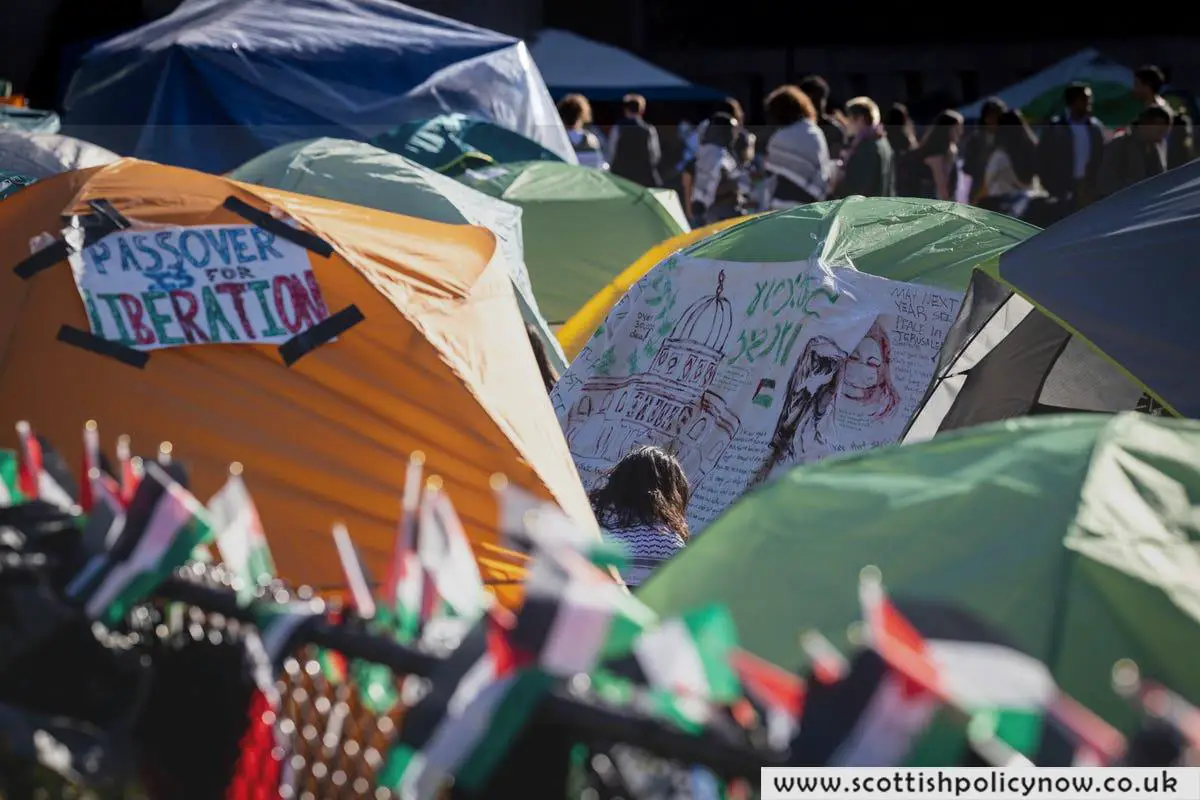Columbia University’s senate has called for an investigation into President Minouche Shafik and other senior administration officials, in response to ongoing protests over the Israel-Gaza conflict and how the university has handled them.
The senate passed a resolution on Friday calling for the investigation, citing alleged violations of university protocols, academic freedom, and due process rights. These claims stem from a report by the senate executive committee criticizing the administration’s response to campus protests, including allowing New York City police to arrest more than 100 students during a recent demonstration.
The resolution passed with a vote of 62-14, with three abstentions. It also calls for establishing a senate task force to investigate future university decision-making processes.

“We unreservedly condemn external interference in the internal affairs of Columbia University that undermines the traditions of academic freedom and shared governance,” the senate’s resolution stated.
Dr. Jeanine D’Armiento, Chair of the University Senate Executive Committee, said, “Columbia University is an institution of teaching, research, and learning. We are not a corporate entity, a media outlet, or an arm of any political party.” She explained that Columbia operates under a shared governance structure, with the senate functioning alongside the president and board of trustees.
Dr. D’Armiento added that the goal of the senate resolution was to support students and show the importance of collective decision-making. “We want the administration to turn around and realize they are running a university,” she said. “We are going to keep pushing and pushing until the administration gets it right.”
While the senate cannot remove President Shafik from her position, the vote underscores the strained relationship between her administration and the university community. Following the vote, Columbia University issued a statement acknowledging the senate’s resolution and expressing a commitment to ongoing dialogue to restore calm to the campus.
The turmoil at Columbia began when students protested, calling for the university to divest from companies with ties to Israel due to the Gaza war. The NYPD was called in to disperse the protests, leading to a backlash from faculty and students.
Ms. Shafik’s handling of the situation has come under intense scrutiny. She has already faced criticism from congressional Republicans and received a motion of censure from Columbia’s chapter of the American Association of University Professors.
Protests at Columbia and other universities, including USC and the University of Texas at Austin, have called for similar changes. The conflict has also spread internationally, with recent police clashes with protesters at the Sciences Po campus in Paris.







